I’ve written hundreds of reviews, previews, and retrospectives during my twenty-odd years as a games inspector. As many of these appeared in the British version of PC Gamer magazine and nowhere else, now and again something from my archive may appear as one of THC’s daily posts. Today’s paragraphs were penned in 2008 and refer to a likeable board game port that vanished from shop shelves and online market places far too quickly.
Life in 14th and 15th Century England was gloriously simple. You either got up in the morning, had breakfast, and went off to kill Frenchmen, or got up, realised you had the plague, and dropped dead. Montjoie features both activities, though mainly it’s concerned with the killing of Frenchmen.
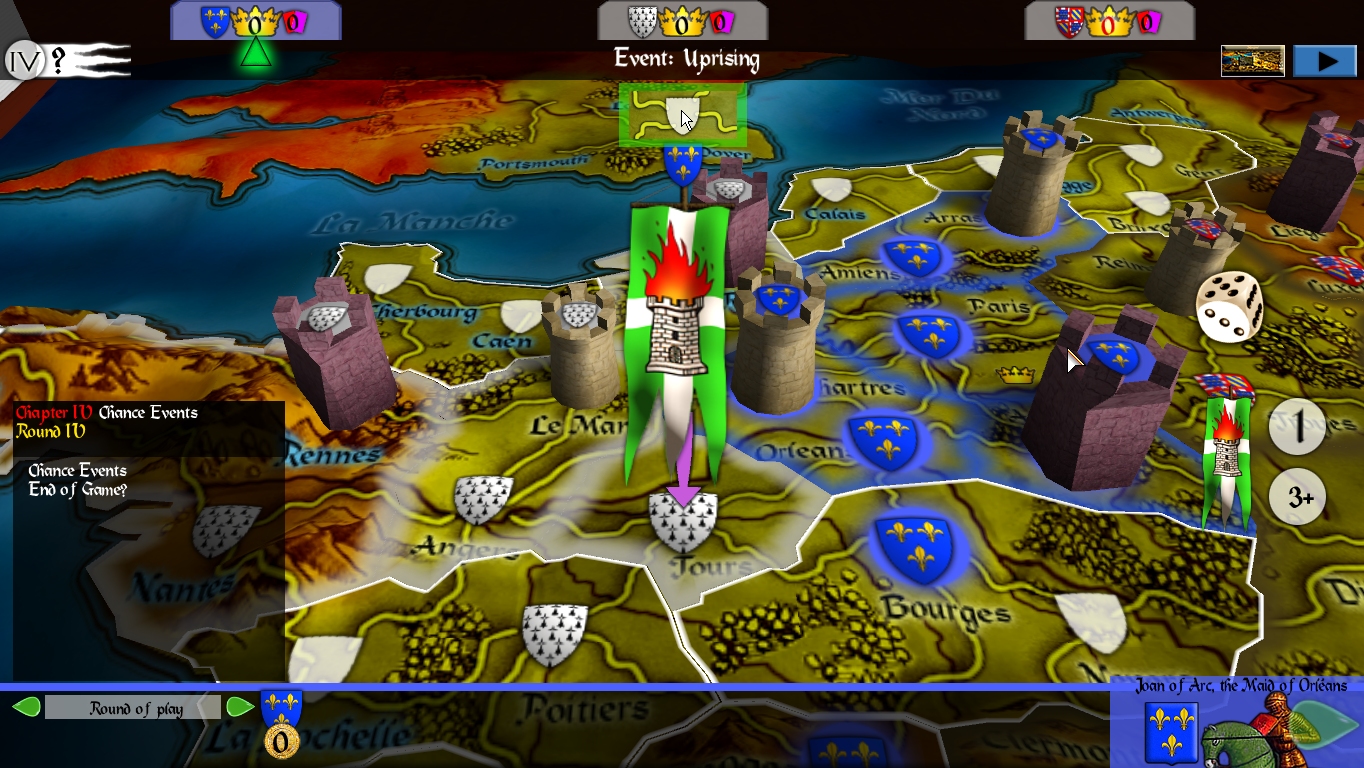
The screenshots and the title (a rallying cry used by Gallic knights) suggest a Hundred Years’ War TBS with Paradox heft, but this board-game-based project from petite Parisian studio Tchounga actually has more in common with Risk than Crusader Kings. Fast, uncomplicated, moreish, there’s something almost PopCap about its easy-going charm.
Play revolves around seizing provinces with army cards, then fortifying them with castles. The more land you lord it over, the more pretender points you gain at the end of each ten-year turn, and the stronger your claim on the French throne becomes.Every turn is chock-a-block with meaty decisions and tense dice rolls. Do I spend my precious tax guineas on fortifications, or do I use them to purchase extra cards, or diplomatic influence? If I could just bribe Brittany to leave me alone for a turn or two then I might be able to make some headway against the pesky Flemish. Then again, maybe I should concentrate on buying votes in the coming peace/war ballot, or place attack incentives on French towns in the hope of weakening my main rival. So many choices, yet somehow it’s never overwhelming.
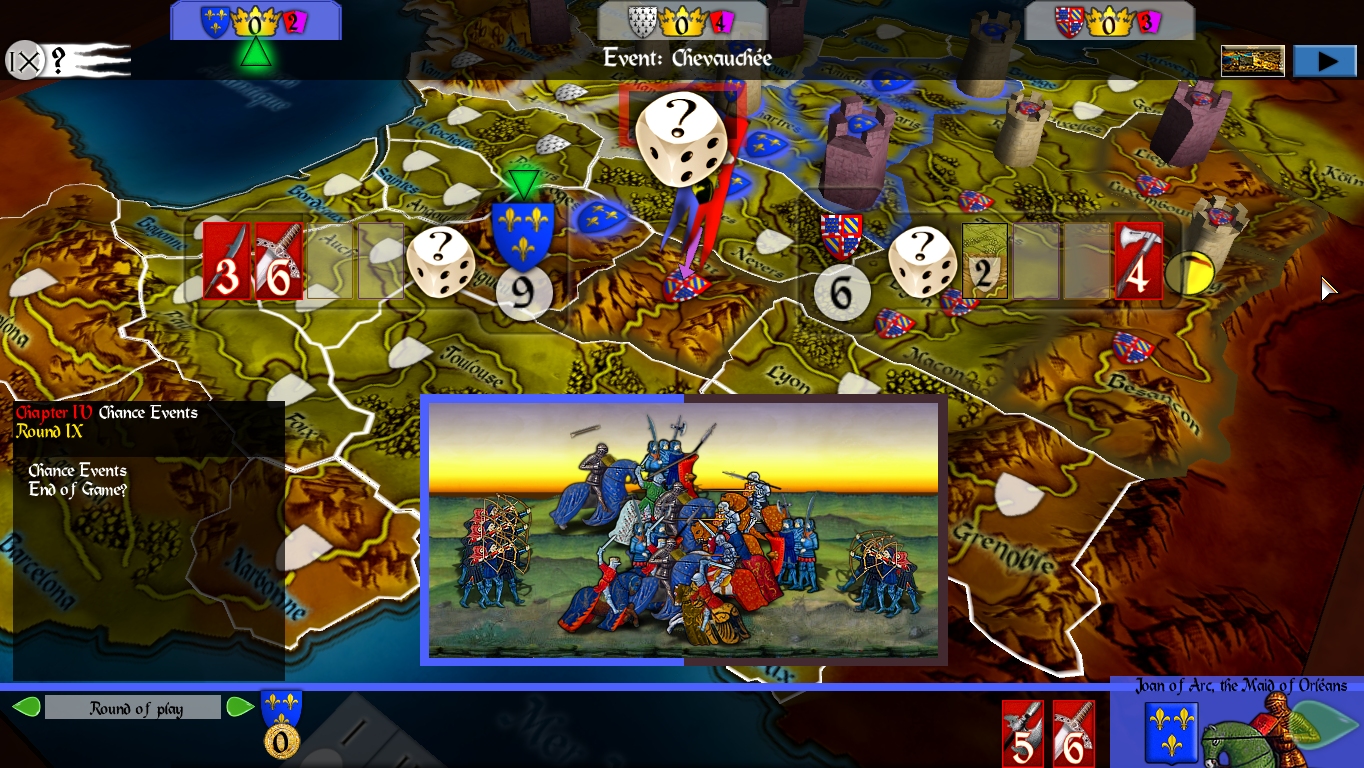
Battles are all about finding the thin line between under and over-committing, and choosing when to use ‘specials’ (cards representing heroes, engineers, and traitors). Fritter away forces in costly sideshows, and later, when other factions are on the offensive, defending gains can be hard. Win, lose, or draw a fight, the aggro animations are always a delight. Imagine a scissors-armed Terry Gilliam let loose on a 14th Century illuminated manuscript.
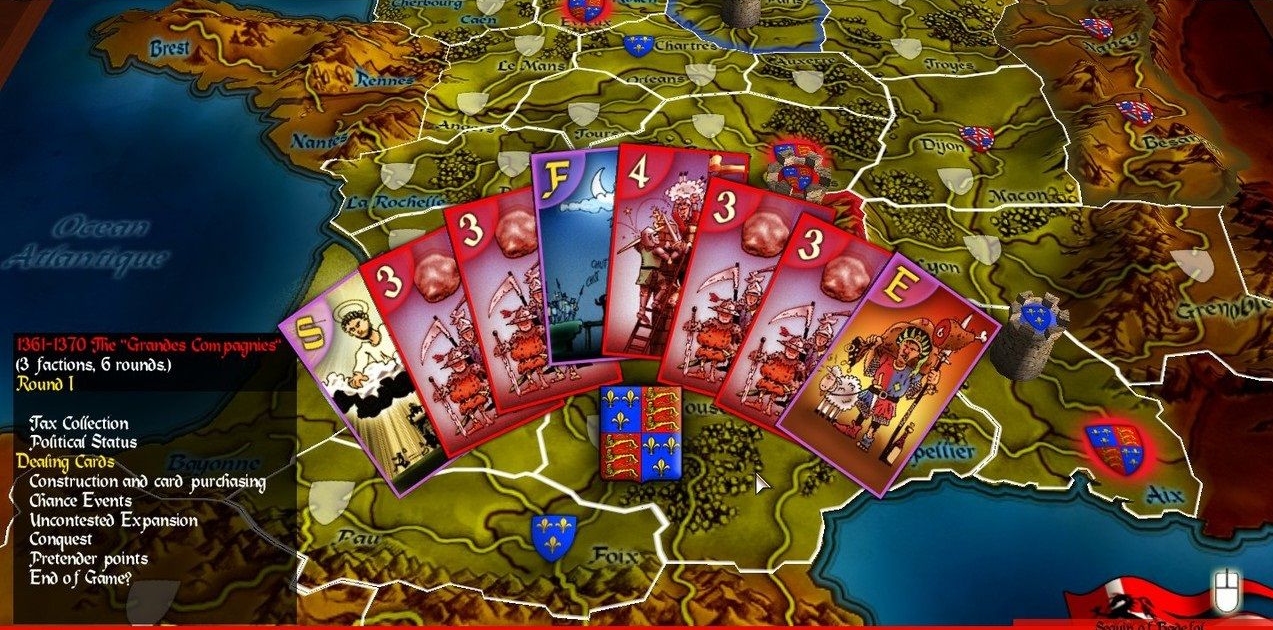
There’s no campaign as such, but there are game variants that cover the full 1337-1453 squabble for France, plus historically inspired scenarios recreating phases like the Breton War of Succession and the Black Prince’s chevauchées. In the standard ‘free’ games, the only difference between the factions is their starting positions. In the scenarios, you can, depending on which you side you select, find yourself dealing with hand restrictions, imposed alliances, or custom victory locations. It’s not wargame-level historicism, but there is more than a whiff of the messy, blood-spattered politics of the era.
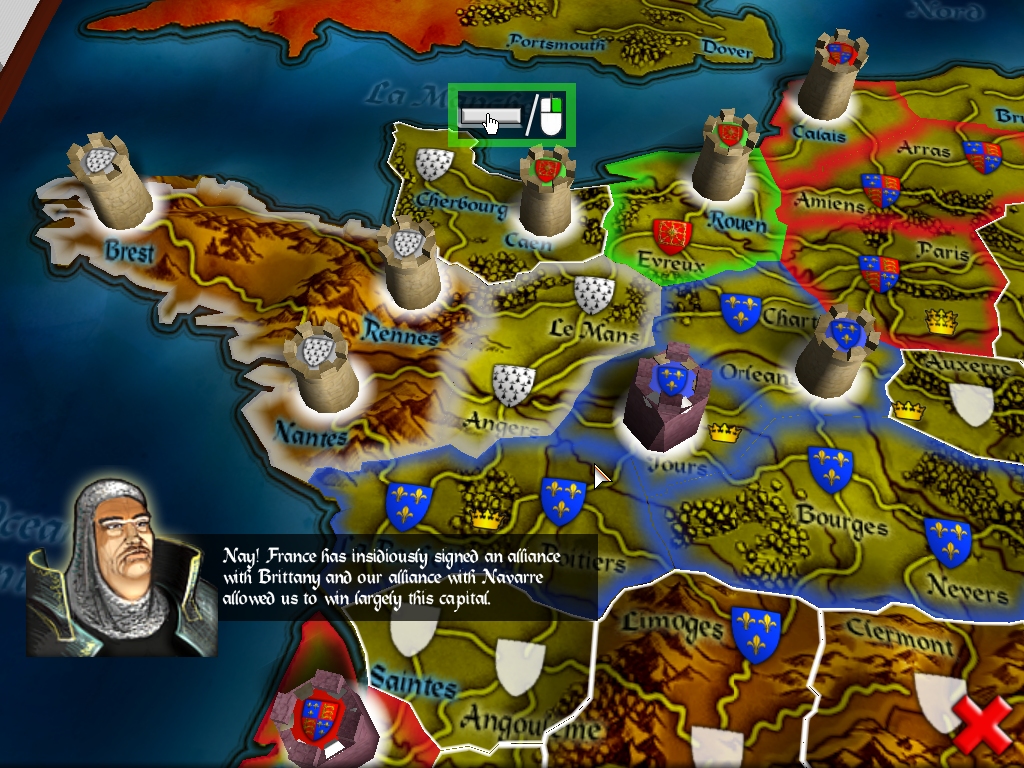
Diplomacy and strategy game AIs generally aren’t the best of friends. Here however, they get on like a heretic on fire. Cunning CPU-controlled powers love to band together and egg each-other on with attack incentives. Be ready for bouts of ‘The buggers are out to get me!” paranoia.
So why ‘only’ 75%? That would be the prominent role luck plays in proceedings. However cleverly you scheme and manoeuvre in Montjoie, your prospects can be thoroughly poxed by a string of low combat rolls, or a couple of awful hands. It all evens out over the course of a few games (runs of good fortune feel great, naturally) but I’d love Tchounga to have included a mode where the dice and the deal weren’t quite so influential.

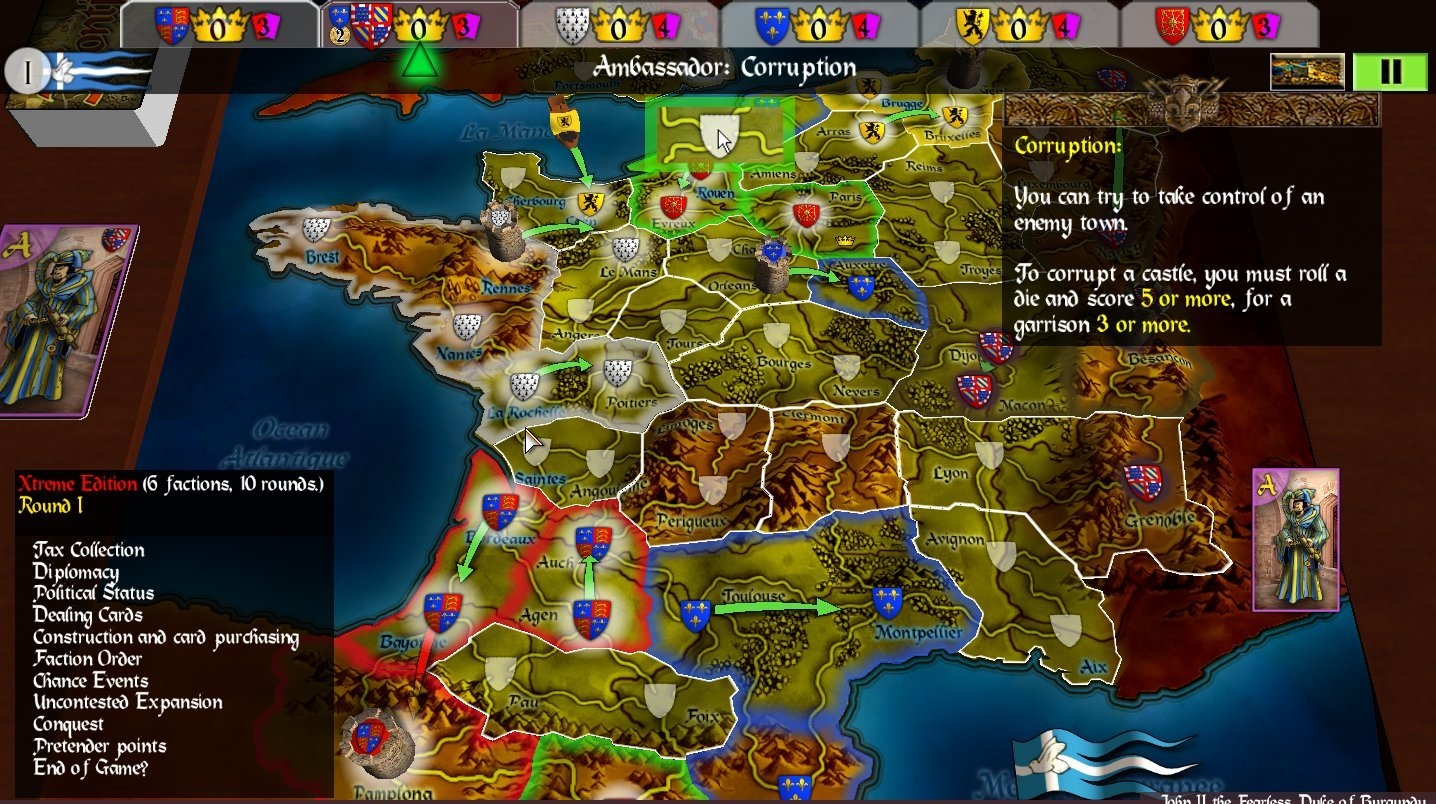
Great game. I still play it now and then. Shame that it didn’t receive more notice when it came out.